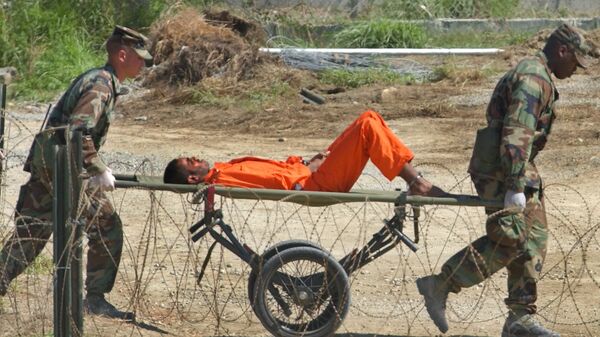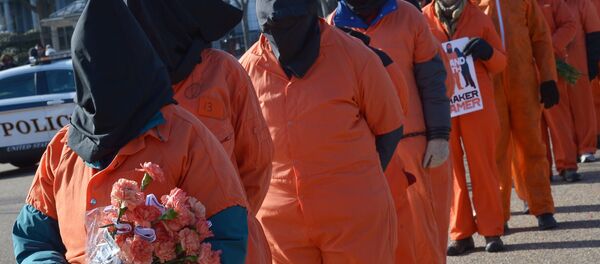Guantanamo Bay, the notorious US prison for terrorism suspects, where people are sometimes held for decades without conviction, may soon need a major refurbishment in order to accommodate hospice facilities for ageing inmates, says a report by The New York Times.
"Unless America's policy changes, at some point we'll be doing some sort of end of life care here," the commander of the detention centre, Rear Admiral John C. Ring told reporters.
After the start of The US War on Terror, American military and intelligence have tucked terrorism suspects away in Guantanamo, established on Cuba in 2002. Many of the detainees have already started suffering typical middle-age health conditions: high blood pressure and cholesterol, joint pain, diabetes and sleep apnoea.
Since the Trump administration made a decision to keep the detention facility open through 2043, the oldest prisoner at that time will be 96 — that is, if he lives that long.
For now, the military says, no prisoner has cancer or dementia and any inmates using wheelchairs can get in and out of them unassisted. Nevertheless, prison staff is already doing some head scratching over how many cells will need to be refurbished with grab bars, ramps and bigger space for gurneys, wheelchairs and showers.
Some prisoners have already needed urgent surgery, due to traumas sustained during CIA torture, the Post reports. US military statements say detainees receive medical care on par with servicemen, but there are solid indications to the contrary.
READ MORE: More Charges Against Assange Could Expose Covert US Programs — Gitmo Lawyer
According to recently released court documents regarding one prisoner's case, Abd al Hadi al Iraqi, a detainee, required emergency surgery in the summer of 2017 due to a degenerative spinal disc disease he had complained about for years. A Navy neurosurgical team was rushed to the base to perform the operation. Later in September, he underwent three more surgeries, but on October, a Guantanamo hospital doctor reported that the patient's "cervical fusion had failed."
The prison was faced with three options, one involving transporting the prisoner to the mainland by air, which was rejected due to the ban on transporting Guantanamo detainees to US soil. According to court documents, an unnamed US officer admitted that "the prospect of attempting" a highly complicated surgery at Guantanamo hospital "scared the hell" out of him.
The Pentagon now seeks to build a small prison with communal hospice care that can accommodate 15 prisoners, and requested $88.5 million to fund the project. Initially, prison hospital costs were estimated at $49 million, but these almost doubled in six years.
According to US penitentiary system rules, even those sentenced to capital punishment cannot be allowed to die because of poor healthcare.
"We don't let people just die in this country. It violates all of our ethics, our medical ethics," says Dr. Stephen N. Xenakis, a psychiatrist and retired Army brigadier general.




